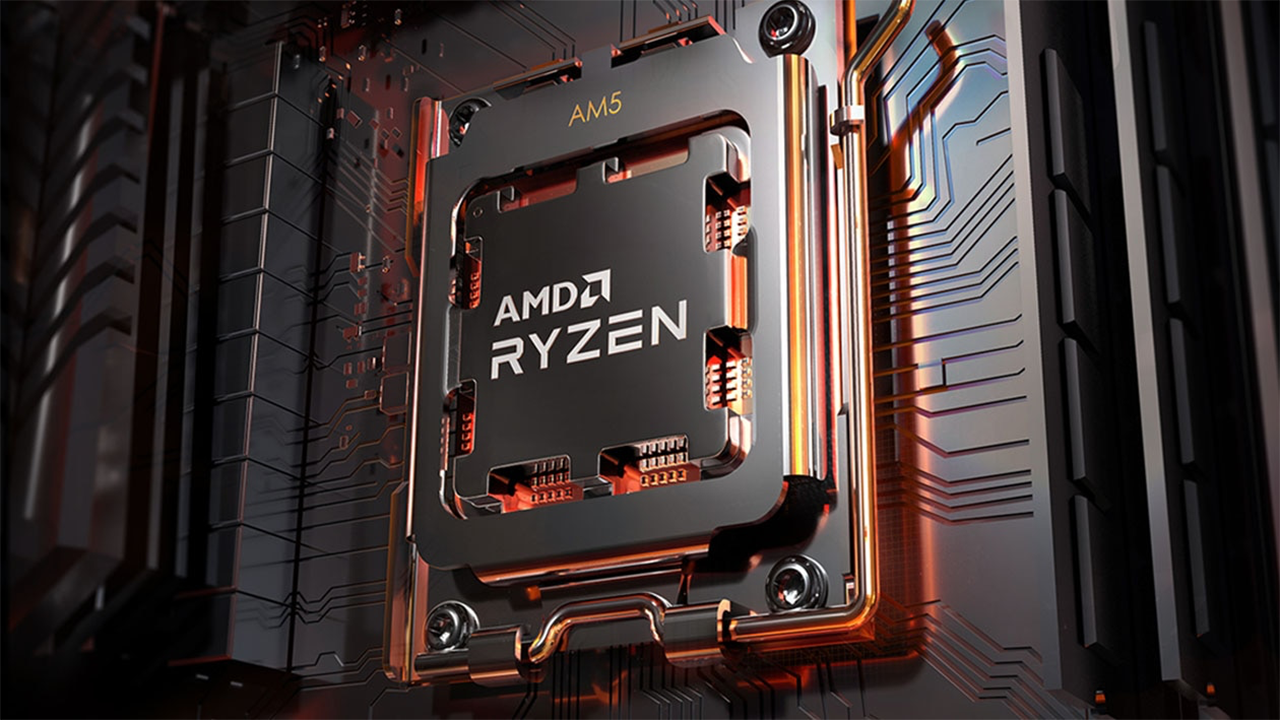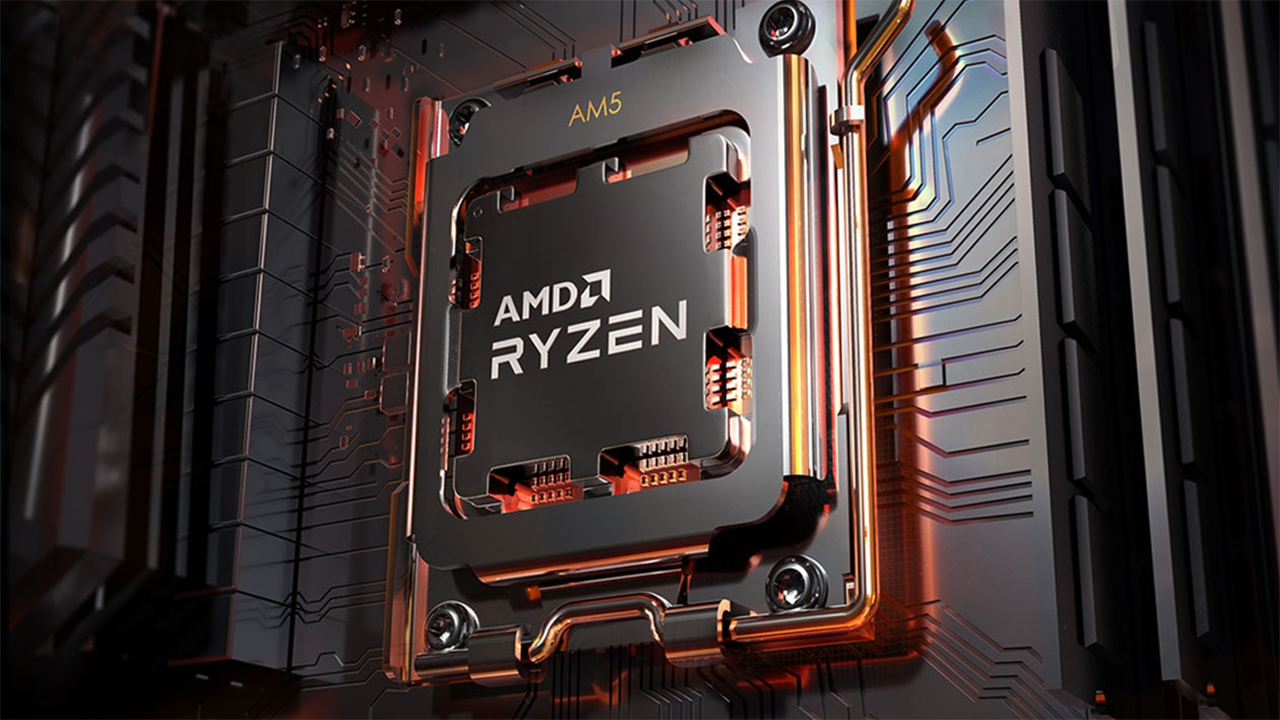
AMD Ryzen 9 7950X3D Tested in Blender, Geekbench 5
As the official launch of AMD’s Ryzen 7000X3D family of CPUs looms, the new Ryzen 9 7950X3D flagship processor’s performance has been revealed in various popular benchmarks. On Friday, the new chip appeared in the Blender (via HXL) and Geekbench 5 (via @Benchleaks) benchmark suites. However, we cannot say that we are impressed with the performance of the new 3D V-Cache-enabled CPU compared to its counterpart without the extra L3 in these tests.
| Header Cell – Column 0 | Price (MSRP / Retail) | Cores / Threads | Base / Boost Clock (GHz) | Cache (L2/L3) | TDP / Max |
|---|---|---|---|---|---|
| Ryzen 9 7950X3D | $699 / ? | 16 / 32 | 4.2 / 5.7 | 144MB (16+128) | 120W / 162W |
| Ryzen 9 7950X | $599 / $589 | 16 / 32 | 4.5 / 5.7 | 80MB (16+64) | 170W / 230W |
Blender
Blender is a tool for creating animations and visual effects. Like other rendering and video editing programs, it takes advantage of multi-thread performance and single-thread performance as well as application-specific optimizations.
| Header Cell – Column 0 | Ryzen 9 7950X3D | Ryzen 9 7950X | Core i9-13900K | Apple M2 Max |
|---|---|---|---|---|
| General specifications | 16C/32T, 4.20 GHz – 5.70 GHz, 144MB L2+L3 | 16C/32T, 4.20 GHz – 5.70 GHz, 80MB L2+L3 | 8P+16E/32T, 3.0 GHz – 5.80 GHz, 68MB L2+L3 cache | 8P + 4E, up to 3.67 GHz |
| Blender | 558.59 | 590.28 | 557.17 | 254.06 |
The 16-core Ryzen 9 7950X3D with 144MB of L2+L3 cache appears to be 5.4% slower than the 16-core Ryzen 9 7950X with 80MB of L2+L3 cache in the Blender benchmark. Meanwhile, the model 7950X3D is a tad faster than Intel’s Core i9-13900K (8P+16E, 32-threads) and substantially faster than Apple’s 12-core M2 Max.
The upcoming Ryzen 9 7950X3D features 16 high-performance cores supporting simultaneous multi-threading (i.e., processing 32 threads simultaneously) operating at up to 5.70 GHz. So, it is not surprising that it beats Apple’s 12-core M2 Max (3.67 GHz) and is a bit faster than Intel’s flagship CPU, which can process up to 32 threads simultaneously. It should be noted that the Core i9-13900K cannot clock its energy-efficient cores higher than 4.30 GHz.
Meanwhile, the Ryzen 7950X3D’s core chiplet die (CCD) with the additional 64MB of 3D V-Cache apparently features lower clocks than Ryzen 9 7950X, which diminishes the advantages of a larger cache for single-threaded performance.
Geekbench 5
Geekbench 5 is a synthetic benchmark that measures single-thread and multi-thread performance in different workloads. This program is not considered the most optimal benchmark for CPUs and GPUs for many reasons, but it still gives an idea about the performance of different hardware in similar workloads.
| Header Cell – Column 0 | Ryzen 9 7950X3D | Ryzen 9 7950X | Core i9-13900K | Apple M2 Max |
|---|---|---|---|---|
| General specifications | 16C/32T, 4.20 GHz – 5.70 GHz, 144MB L2+L3 | 16C/32T, 4.20 GHz – 5.70 GHz, 80MB L2+L3 | 8P+16E/32T, 3.0 GHz – 5.80 GHz, 68MB L2+L3 cache | 8P + 4E, up to 3.67 GHz |
| Single-Core | Integer | 1783 | 1838 | 2016 | 1882 |
| Single-Core | Float | 2265 | 2302 | 2464 | 2216 |
| Single-Core | Crypto | 6375 | 7219 | 5860 | 3283 |
| Single-Core | Score | 2157 | 2246 | 2343 | 2052 |
| Row 5 – Cell 0 | Row 5 – Cell 1 | Row 5 – Cell 2 | Row 5 – Cell 3 | Row 5 – Cell 4 |
| Multi-Core | Integer | 21473 | 25087 | 28379 | 13353 |
| Multi-Core | Float | 24372 | 27790 | 31320 | 16819 |
| Multi-Core | Crypto | 11445 | 12632 | 22280 | 25911 |
| Multi-Core | Score | 21841 | 25275 | 28956 | 15021 |
| Link | https://browser.geekbench.com/v5/cpu/20655028 | https://browser.geekbench.com/v5/cpu/20574320 | https://browser.geekbench.com/v5/cpu/20655426 | https://browser.geekbench.com/v5/cpu/20650321 |
AMD’s Ryzen 9 7950X3D with 3D V-Cache appears to be a tad slower than the Ryzen 9 7950X without extra cache in single-thread and multi-thread workloads.
Regarding frequencies, the tested AMD Ryzen 9 7950X3D sample on the Asus ROG Crosshair X670E Hero worked at around 5480 MHz most of the time with a balanced power plan. Meanwhile, an AMD Ryzen 9 7950X on the same motherboard worked at a bit higher frequencies with the same balanced power plan, which is perhaps why the CPU without 3D V-Cache is faster in Geekbench 5.
Some Thoughts
Of course, we cannot draw accurate conclusions based on test results from one or two pre-production systems. But we can still share some thoughts about the results at hand.
The main advantage of AMD’s Ryzen 9 7950X3D CPU over its Ryzen 9 7950X counterpart is a massively larger L3 cache. Meanwhile, the former processor boasts higher base frequency and higher boost clocks across all cores; at least, it looks so based on results obtained in Blender and Geekbench 5. In many programs, clocks matter more than cache sizes, which is why the model 7950X3D is behind the model 7950X in the said benchmarks.
It is reasonable to assume that in applications that depend primarily on single-thread performance and memory bandwidth, the Zen 4-based processors with 3D V-Cache will demonstrate significant advantages over their counterparts without the extra L3 cache.
Keeping in mind that AMD’s Ryzen 7000X3D CPUs are a couple of weeks away, it makes sense to wait for comprehensive reviews and find out all the details about the advantages and disadvantages of the new processors compared to regular Ryzen 7000-series units.

